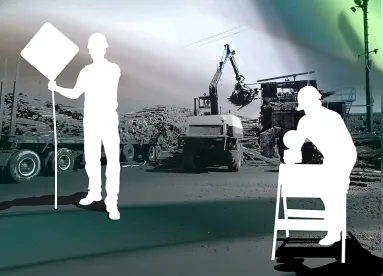On March 25, 2020, in response to the COVID-19 pandemic and pursuant to Section 6 of Governor Murphy’s Executive Order 103, Lt. Governor Sheila Oliver, Commissioner New Jersey Dept. of Community Affairs (DCA), issued an emergency adoption of a temporary rule relaxation of regulatory provisions concerning Minor Work (N.J.A.C. 5:23-2.17A), Inspections (N.J.A.C. 5:23-2.18) and Certificate Requirements (N.J.A.C. 5:23-2.23).
Pursuant to Executive Orders 107 and 108, local enforcing agencies (LEAs) cannot restrict code officials from performing their duties under the Uniform Construction Code (UCC). In response, the DCA has temporarily modified and relaxed certain Administrative Code provisions in order to ensure the continuity of construction without a detriment to the public welfare during the COVID-19 crisis.
COVID-19 Construction Inspection Relaxations and Modifications
-
All required inspections for new construction and any work on the exterior or outside of any occupied building should be performed as usual.
-
Rough inspections for new additions should be performed, provided no entry to the occupied home or building is required or that appropriate social distancing is in effect.
-
Contractors may report construction activity, such as rough inspections, in existing occupied buildings with photos or other documentation for the time being.
-
Items listed as Minor Work at N.J.A.C. 5:23-2.17A require only a final inspection. This includes inspections of replacement items such as a residential heater, air conditioner and/or water heaters. These inspections may be deferred to a later date. The contractor should report construction activity as indicated in item 3 above.
Certificate of Continued Occupancy Inspection Recommendations
The DCA is encouraging LEAs to work from home whenever possible. If an LEA office is forced to close due to COVID-19, and inspections must be deferred, construction officials shall perform a Certificate of Continued Occupancy (CCO) upon reopening of offices. The DCA advises that a CCO inspection is a reasonable solution for ensuring that construction work is properly documented and that future projects are not cited for violations for work performed without permits or inspections. The documentation for CCO inspections shall include a report describing the work performed without inspections; approval by the design professional overseeing the project; and documentation of the work in accordance with the UCC, including before, during and after photographs or video of the work performed.
For any projects which have not previously received a Certificate of Occupancy, the same procedures noted above shall be followed. However, instead of having a CCO issued when the LEA offices are reopened, contractors may reach out to the DCA for issuance of a Temporary Certificate of Occupancy (TCO). Once the building is initially occupied under the TCO, the contractor may apply for a Certificate of Occupancy to be issued by the LEA per the applicable construction activity under N.J.A.C. 5:23-2.23.




 />i
/>i

